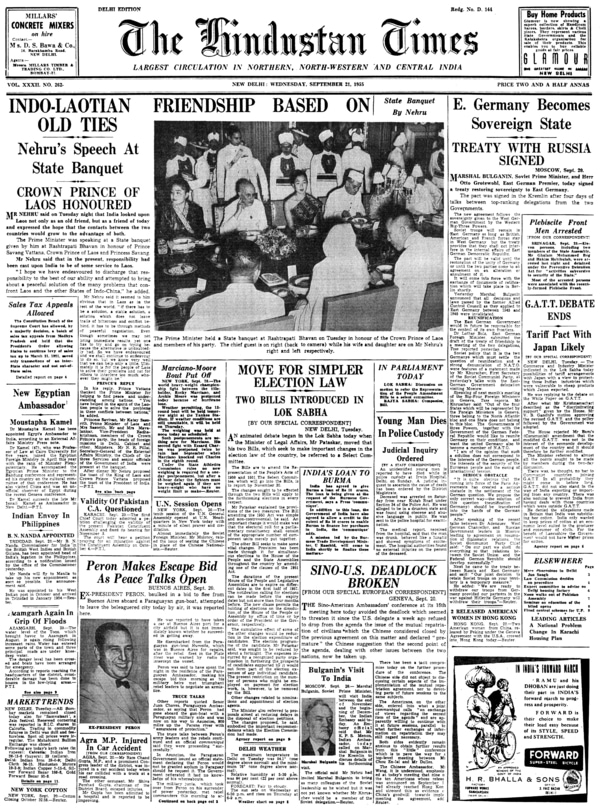In a virtual address to mayors of urban bodies ruled by the Bharatiya Janata Party (BJP), the PM pushed for holistic development of cities and localised plans for urbanisation, which he said were key to national progress. HT brings you a round-up of the most important and interesting stories, so you don’t miss your daily dose of news. |
THE BIG STORY Small towns, local planning keys to urban India: Modi State governments and city administrations should create satellite towns and develop smaller cities into economic centres to ease the population pressure on metropolises, Prime Minister Narendra Modi said on Tuesday, focussing on decentralised urbanisation and laying out a road map for the next 25 years to take India forward. Read more. |
STORIES YOU MAY HAVE MISSED |
| |
The Big Question How is the PFI involved with the hijab row? Girl students in Karnataka did not begin wearing hijab to educational institutions until a conspiracy was hatched by Popular Front of India (PFI) to create social unrest and “children started acting as advised”, the state government told the Supreme Court on Tuesday as it defended a ban on wearing hijab in schools. Read more. |
 The Madras High Court has granted bail to a petitioner on one condition. Caught for driving drunk and injuring three people, he has to accompany police to busy junctions for two weeks, to educate the public against drunk driving. What will he be doing? |
| |
From the Edit Page Creating a sustainable home for the cheetahs Amid fanfare and apprehension, India has embarked upon a challenging journey involving the most iconic species it has seen since the launch of Project Tiger in 1973. In many respects, this project is more complicated than the tiger recovery programme, as Acinonyx jubatus, the cheetah, has been extinct in the wild in India for 70 years. The first eight individuals that landed on September 17 are of African origin, not the Asian subspecies, of which only 15 survive in Iran. Read more. |
Number Theory Why Old Pension Scheme is bad politics, bad economics More and more opposition parties in India seem to be warming to the idea of reverting to the Old Pension Scheme (OPS). There is no denying that such a promise will appeal to current and future government employees. The OPS offers guaranteed, inflation- and pay commission-indexed pension payments to retired government employees and their spouses (after the employees’ death) without any contribution from the employees. The New Pension Scheme (NPS) – it was first implemented by the Centre in 2004 and 27 states have shifted to it since then – does not even come close in terms of future earnings to the OPS. The NPS corpus is built by employee contributions – to be sure, the government also makes a contribution – and returns are market-based rather than a fixed proportion (subject to upward indexation) of the income level at the time of retirement. Read more. |
From the Field Light, sound, curtain: Cinema blooms in the Valley again On Tuesday morning, a group of more than 100 people filtered into a sparkling white building with black marble interiors. Its facade was lined with marigolds, and a celebratory blue ribbon adorned its front gates. The gaggle walked into the building’s carpeted halls, with the smell of popcorn thick in the air. Read more. |
| |
Infographic of the Day Conviction tossed in 'Serial' case  (Click to expand) |
 Distributing pamphlets |
Photo of the Day Some roti romance |
HT This Day: September 21, 1955 E. Germany becomes sovereign state  (Click to expand) Marshal Bulganin, Soviet Prime Minister, and Herr Otto Grotewohl, East German Premier, today signed a treaty restoring sovereignty to East Germany. The pact was signed in the Kremlin after four days of talks between top-ranking delegations from the two Governments. Read more. |
Please share you feedback with us What do you think about this newsletter? |
Were you forwarded this email? Did you stumble upon it online? Sign up here. | | | | | |